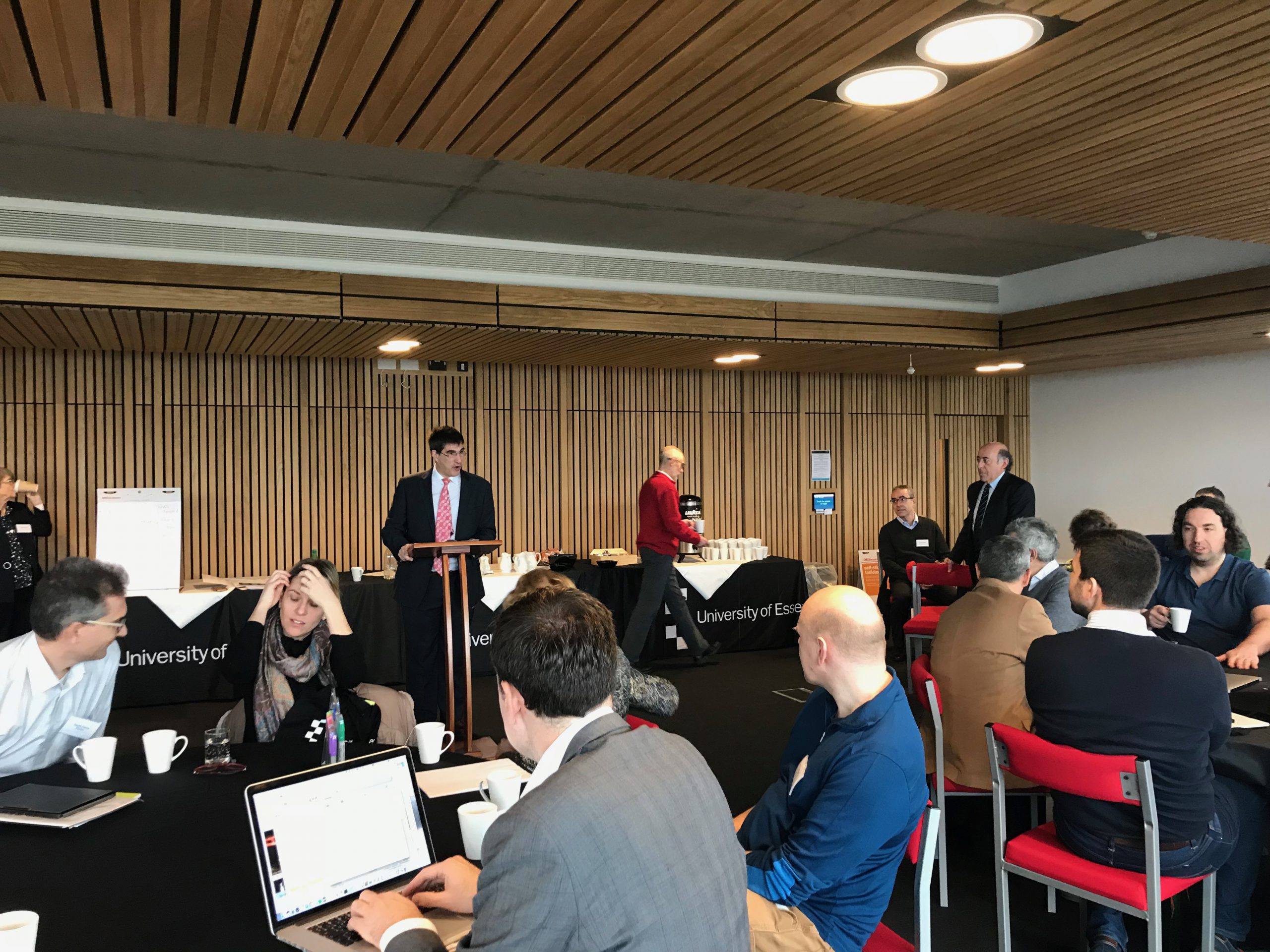University of Essex, with the collaboration of universities Rome Tor Vergata and Carlos III Madrid, has welcomed YERUN researchers on big data to the 1st YERUN Research Workshop.
The substantive focus for this workshop is being on Big Data, Data Analytics and the Digital Economy. The impact of big data has been described as the fourth industrial revolution – a revolution in how we collect, analyse and use information in every aspect of our lives, how we do business, how we deliver public and private services and how we can use data to address global challenges.
Many YERUN partners are experts in analytics, data storage, managing and curating data; creating innovative data sets; developing new scientific techniques to analyse data and generate knowledge; analysing the impact on business models and business processes; educating the next generation of data scientists; spreading basic knowledge on data management among students of different fields; educating the next generation of data scientists; and applying scientific knowledge to the real world through the understanding of human behaviour.
At the University of Essex, Professor Maria Fasli was recently appointed as the first UNESCO Chair in Analytics and Data Science and she heads the Institute for Analytics and Data Science (IADS) at Essex. This is an area of research where YERUN partners have much in common and can develop research projects that connect globally with scholars, business, regional, national and EU authorities, and align with large-scale funding opportunities.
YERUN was created in 2015 as the result of existing collaboration among 18 young and highly ranked universities in Europe. Our goal is to facilitate and promote joint initiatives in the areas of research, teaching and mobility among our members. One of the key actions we are launching with this purposes is precisely the YERUN Research Workshops. The aim of this exercise is to facilitate the connections between researchers working on areas related to Big Data, learn more about each other capacities and prepare the grounds for more solid collaborations in the future. Joint publications, joint ventures, visiting fellowship and EU funded proposals are among the objectives we have in mind.
For the moment, YERUN members participate in a total of 636 EU funded projects, of which they coordinate 180. Understanding the need to engage with partners outside the network (other universities but more relevant, other sectors such as SMEs, business, civil society, etc.), there is still room for further improvement of the collaboration among our members.














